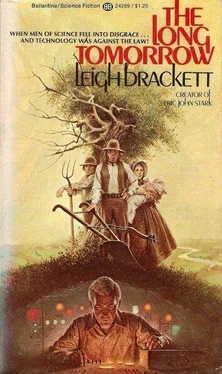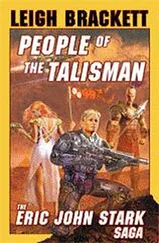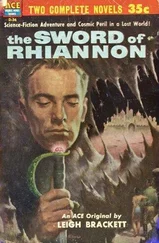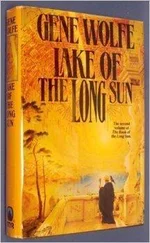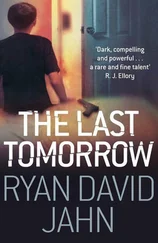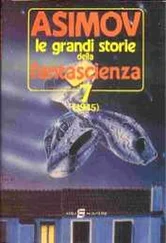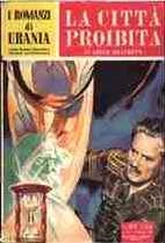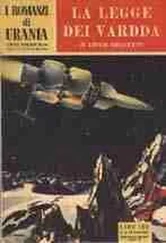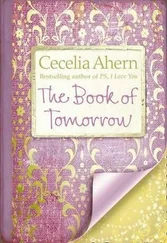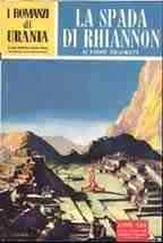“They told about it on the teevee. Oh, they didn’t tell where it was or what if was for, and they said it might be only a rumor. But I remember the name.”
“Then,” said Len softly, “it was real!”
“But that’s not saying it is now. That was a long time ago. It’s maybe just the memory of it hung on, like your pa said, with children and fanatics.” She added tartly under her breath that she wasn’t either one of those, herself. Then she said, “You leave it alone, Lennie. Don’t have any truck with the Devil, and he won’t have any with you. You don’t want happening to you what happened to that man at the preaching.”
Lennie turned hot and cold all over again. But curiosity made him ask in spite of that, “Is Bartorstown such a terrible place?”
“It is,” said Gran with sour wisdom, “if everybody thinks it is. Oh, I know! All my life I’ve had to watch my tongue. I can remember the world the way it was before. I was only a little girl, but I was old enough for that, almost as old as you. And I can remember very well how we got to be Mennonites, that never were Mennonites before. Sometimes I wish—” She broke off, and looked again at the flaming trees. “I did love that red dress.”
Another silence.
“Gran.”
“Well, what is it?”
“What were the cities like, really?”
“Better ask your pa.”
“You know what he always says. Besides, he never saw them. You did, Gran. You can remember.”
“The Lord in His infinite wisdom destroyed them. It’s not up to you to question. Nor me.”
“I’m not questioning—I’m only asking. What were they like?”
“They were big. A hundred Piper’s Runs wouldn’t have made up a half of even a small city. They had all hard pavements, with walks to the side for the people, and big wide roads in the middle for the cars, and there were great big buildings that went way up in the air. They were noisy, and the air smelled different, and there were always a lot of people hurrying back and forth. I always liked to go to the city. Nobody thought they were wicked then.”
Len’s eyes were large and round.
“They had big movie theaters, huge, with plush seats, and supermarkets twice as big as that barn, with every kind of food in them, all in bright shiny packages—the things you could buy any day in the week that you’ve never even heard of, Lennie! White sugar, we thought nothing of it. And spices, and fresh vegetables all winter, frozen into little bricks. And the things there were in the stores! Oh, so many things, I couldn’t begin to tell you, clothes and toys and ’lectric washers and books and radios and teevee sets—”
She rocked back and forth a little, and her old eyes flashed.
“Christmas time,” she said. “Oh, at Christmas time with the windows all decorated and the lights and the carols! All colors and brightness and people laughing. It wasn’t wicked. It was wonderful.”
Len’s jaw dropped. He sat that way, with his mouth open, and a heavy step vibrated along the floor from inside, and he tried to tell Gran to hush, but she had forgotten he was there.
“Cowboys on the teevee,” she mumbled, reaching far back across the troubled decades. “Music, and ladies in beautiful dresses that left their shoulders all bare. I thought I would look like that when I got big. Picture books, and Mr. Bloomer’s drugstore with the ice cream and the chocolate rabbits at Easter—”
Pa came out the door. Len got up and went down to the bottom of the steps. Pa looked at him, and Len crumbled inside, thinking that life had been nothing but trouble for the last three weeks.
“Water,” said Gran, “that ran out of shiny faucets when you turned them. And a bathroom right in the house, and ’lectric light—”
Pa said to Len, “Did you get her talking?”
“No, honest,” said Len. “She started off herself, about a red dress.”
“Easy,” said Gran. “All easy, and bright, and comfortable. That was the world, And then it was gone. So fast.”
Pa said, “Mother.” She glanced up at him, sidelong, and her eyes were like two faded sparks, snapping and flaring. She said, “Flat-hat.”
“Now, Mother—”
“I wish I had it back,” said Gran. “I wish I had a red dress, and a teevee, and a nice white porcelain toilet, and all the other things. It was a good world! I wish it hadn’t ended.”
“But it did end,” said Pa. “And you are a foolish old woman to question the goodness of God.” He was talking less to her than to Len, and he was very angry. “Did any of those things help you to survive? Did they help the people of the cities? Did they?”
Gran turned her face away and would not answer.
Pa came down and stood in front of her. “You understand me, Mother. Answer me. Did they?”
Tears came into Gran’s eyes, and the fire died out of them. “I’m an old woman,” she said. “It isn’t right for you to yell at me that way.”
“Mother. Did those things help one single person to survive?”
She let her head fall forward and moved it slowly from side to side.
“No,” said Pa, “and I know because you told me how no food came in any more to the markets, and nothing would work on the farms because there was no power any more, and no fuel. And only those who had always lived without all the luxuries, and done for themselves with their own hands, and had no truck with the cities, came through without hurt and led us all in the path of peace and plenty and humility before God. And you dare to scoff at the Mennonites! Chocolate rabbits,” said Pa, and stamped his boots on the earth. “Chocolate rabbits! No wonder the world fell.”
He swung around to include Len in the circle of his wrath. “Haven’t you got any thankfulness in your hearts, either of you? Can’t you be grateful for a good harvest, and good health, and a warm house, and plenty to eat? What more does God have to give you to make you happy?”
The door opened again. Ma Colter’s face appeared, round and pink and full of reproof, framed in a tight white cap. “Elijah! Are you raising your voice to your mother, and on the Sabbath day?”
“I had provocation,” said Pa, and stood breathing hard through his nose for a minute or two. Then, more quietly, he said to Len, “Go to the barn.”
Len’s heart sank down into his knees. He began to shuffle away across the yard. Ma came clear out the door, onto the stoop.
“Elijah, the Sabbath day is no time—”
“It’s for the good of the boy’s soul,” said Pa, in the voice that meant no more argument. “Just leave this to me, please.”
Ma shook her head, but she went back inside. Pa walked behind Len toward the open barn doors, Gran sat where she was on the steps.
“I don’t care,” she whispered. “Those things were good.” After a minute she repeated fiercely, “Good, good, good!” Tears ran slowly down her cheeks and dropped onto the bosom of her drab homespun dress.
Inside the barn, warm and shadowy and sweet with the stored hay, Pa took the length of harness strap down from its nail on the wall, and Len took off his jacket. He waited, but Pa stood there looking at him and frowning, drawing the supple leather through his fingers. Finally he said, “No, that’s not the way,” and hung the strap back on the wall.
“Aren’t you going to lick me?” Len whispered.
“Not for your grandmother’s foolishness. She’s very old, Len, and the very old are like children. Also, she lived through terrible years and worked hard and uncomplainingly for a long lifetime—perhaps I shouldn’t blame her too much for thinking of the easeful things she had in her childhood. And I suppose it’s not in the nature of a human boy not to listen to it.”
Читать дальше
